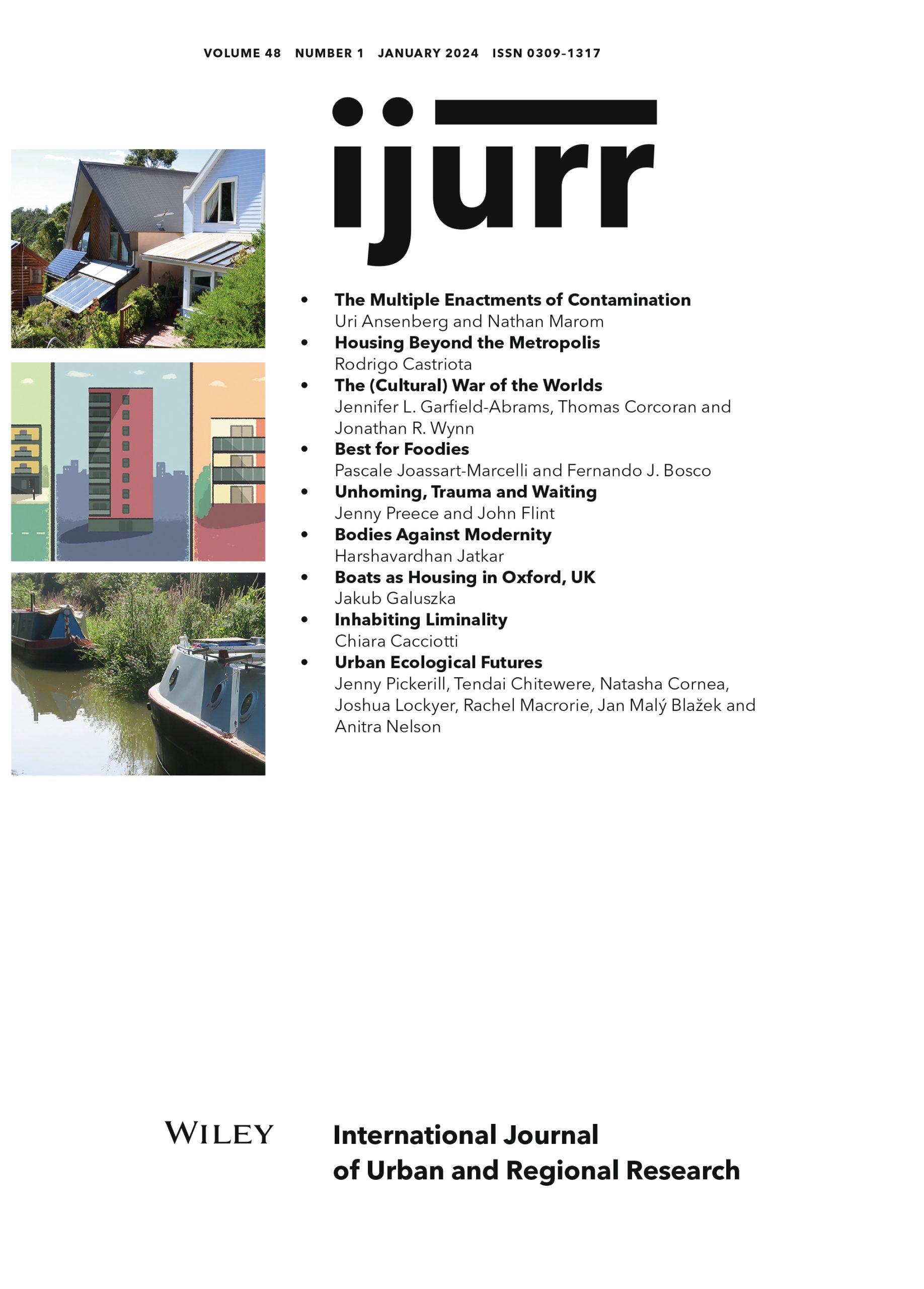In this blog, Divine Asafo, explains the benefit of the IJURR Foundation’s writing up award for the final stages of his PhD. The writing up award is for students who have completed their fieldwork but are still completing their final thesis. This is a stage where not many funding options exist.

Being funded for a PhD programme is always a huge financial relief, not to mention the sufficient time available to students to concentrate on their research. However, it becomes difficult when the funding runs out in the third year of your Ph.D. while you still have the fourth year to round up your writing. This was the situation I found myself in two years ago, when my PhD funding ran out and I was forced to rely on my savings, which were almost depleted. In fact, in 2020, I had the opportunity to apply for the IJURR Writing-Up Grant. Writing this blog post proves that I was among those who received the grant. Without a doubt, the application process, the anticipation of the outcome, and finally, the receipt and use of the funds are marked by numerous lessons that I would like to share. Although the writing-up grant had many effects on my research and myself at the time, I’d like to highlight two of the most significant.
To begin with, receiving the IJURR writing-up grant meant I had enough funds for my maintenance. Particularly, receiving the IJURR Writing-up at the height of the Covid 19 pandemic was more significant and valuable. This was the period when the UK experienced its first national lockdown in March 2020. Coupled with this was the shutting down of all non-essential services and we were ordered to stay at home. Universities were also forced to restructure their finances in order to prepare for the unknown. Consequently, my options for part-time work at my university to supplement my finance were limited. As a result, the grant provided me with peace of mind and the opportunity to concentrate on writing my thesis. Thus, the grant facilitated the completion of my thesis, and I was able to meet the goal of submitting it for examination in the second quarter of the writing-up year.
More importantly, the IJURR Writing-up Grant provided me with valuable hands-on experience in grant application writing. Writing my case for support, providing a synopsis of my thesis, and successfully submitting the application all provided me with valuable experience that will be useful in writing and bidding for future grants. More practically, I’ve realised how important it is to be coherent, concise, transparent, and realistic when writing grant applications. These elements are the fundamental ‘tools’ for planning, designing, and developing a strong case for competitive grants. Writing a progress report also enhanced my knowledge of managing and accounting for grant funding. Although I have not yet submitted a grant, these lessons will be invaluable when writing quality and competitive proposals for future grants.
In conclusion, receiving the IJURR Writing-up Grant gave me more than just financial assistance; it also improved my ability to translate my thesis into peer-reviewed journal articles and other academic outputs. Significant among these include a recent publication in Housing Studies journal titled ‘Fragile and Compromised Housing’: Implications of Land Conflicts on Housing Development in peri-urban Accra, Ghana’ and a co-authored publication on ‘Landguardism in Ghana…’ in the Land Use Policy journal. Additionally, there is a forthcoming article in IJURR’s web-based Spotlight On series that will discuss land commodification and tenure (in)security in peri-urban Accra, and a book chapter on peri-urban transformation and the changing land markets in Accra. This is part of the Living the Africa Urban Periphery book project, which will be published by Manchester University Press as part of the Global Urban Transformation series.
With my research interest revolving around peri-urbanisation, housing and governance, I am currently working on two projects. The first investigates the multifaceted roles of peri-urban housing in Accra. This is predicated on the notion that the symbolic significance of houses in peri-urban areas is radically evolving. The second project, which focuses on residents’ associations in peri-urban areas investigates their evolution and more importantly, how they influence everyday governance in peri-urban areas of the Global South. The outputs of these projects will be published in peer-reviewed journals including Housing Studies and Urban Governance. Finally, workshops on research dissemination will be organised for policymakers to discuss the research findings.
Divine M. Asafo Lecturer in Human Geography; Deputy Director, CDD Pathway-ESRC Doctoral Training Partnership, University of Hull, United Kingdom.
Next: Feminicide in Rio de Janeiro
Previous: The Beautiful, the Cosy, the Exciting—Aesthetic Desires We Live By
